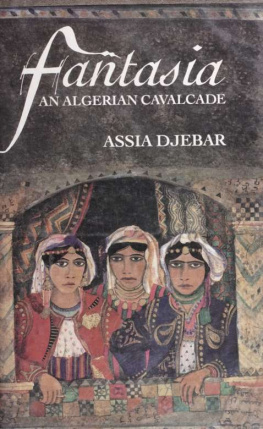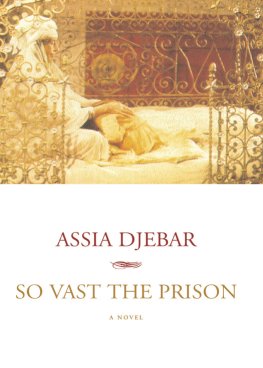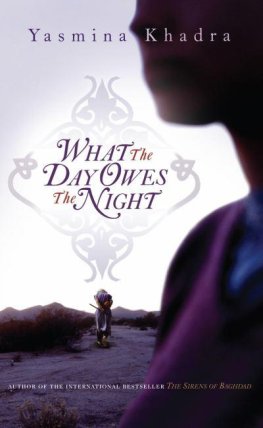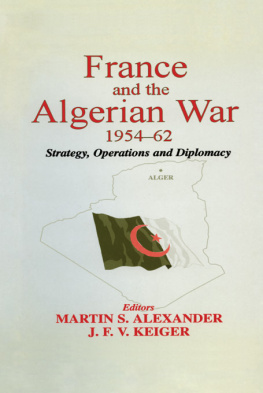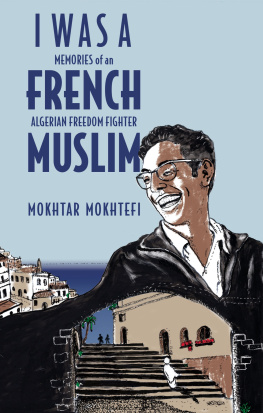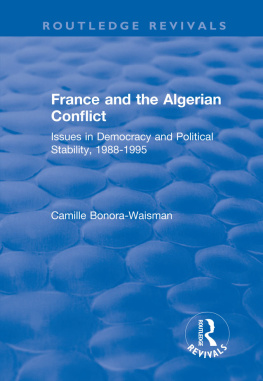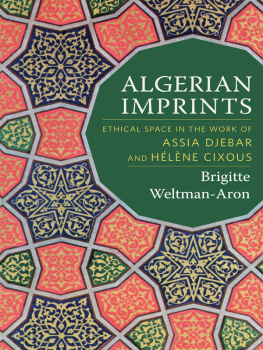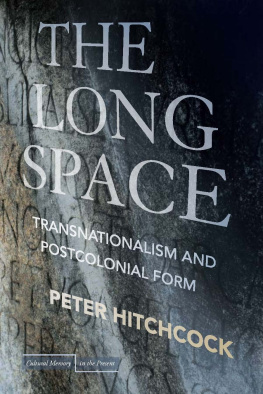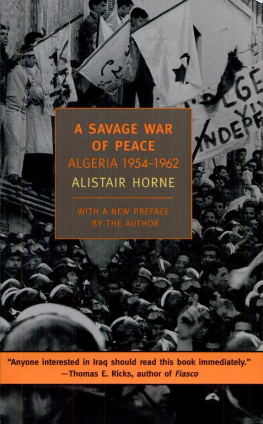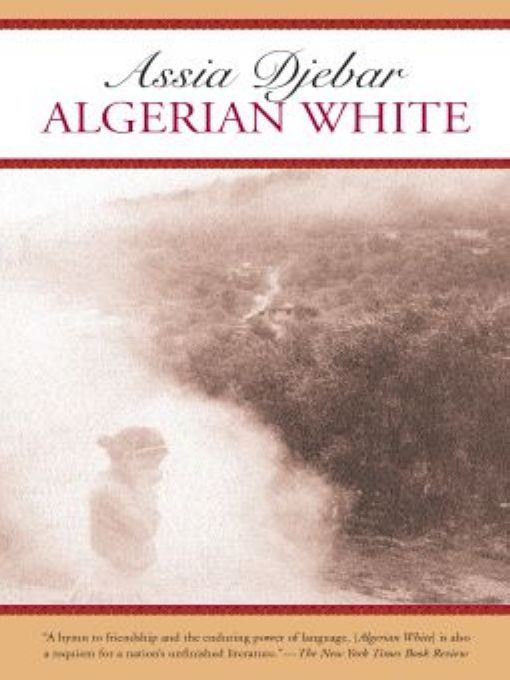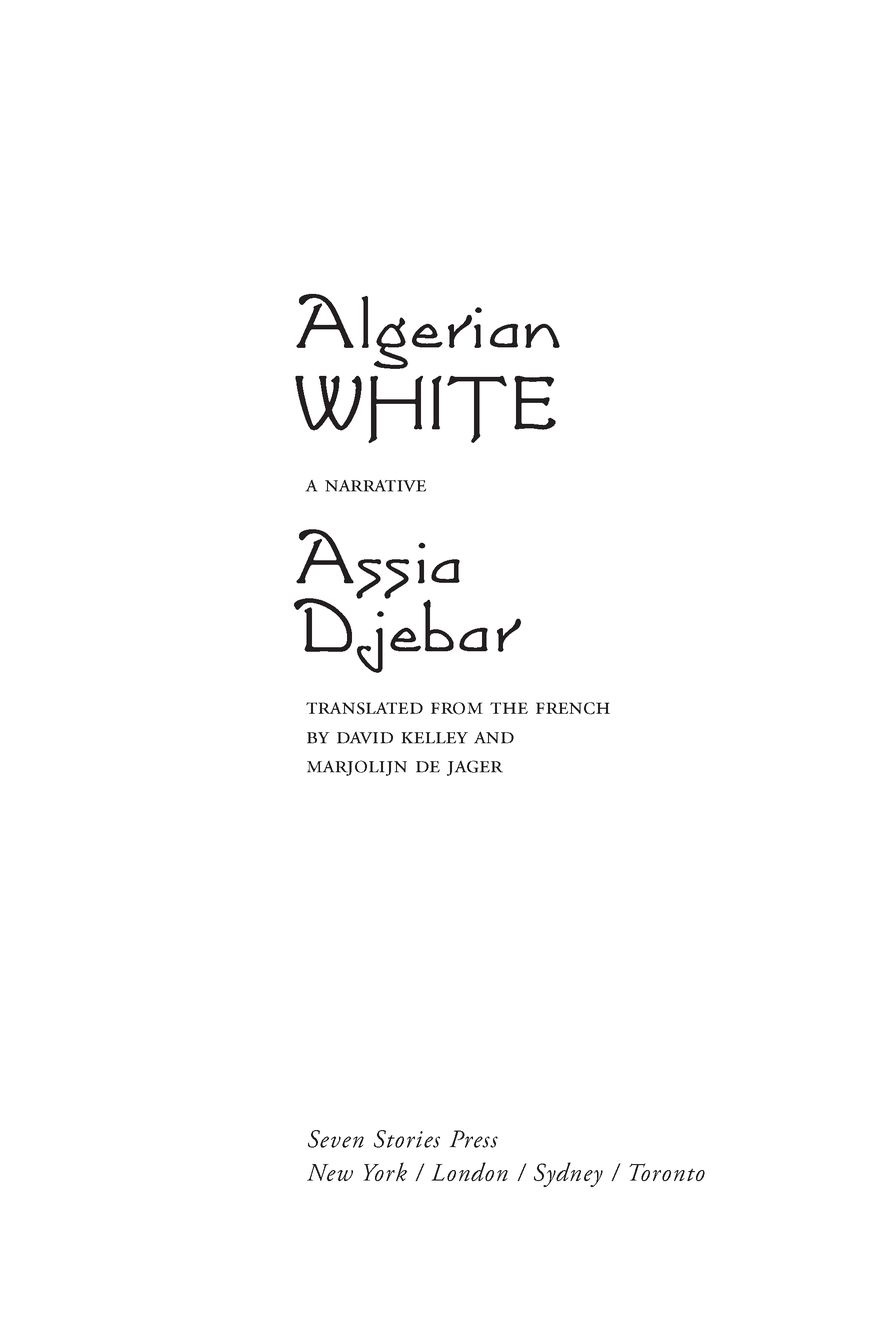Table of Contents
In memory of three friends
who are gone:
MAHFOUD BOUCEBI
MHAMED BOUKHOBZA
ABDELKADER ALLOULA
I
The Language of the Dead
Hurry up and die, then you
will speak as ancestors
Kateb Yacine
LOeuvre en fragments
If I had the power to give voice to our solitude and anguish, it would be in that voice that I would speak to you now.
Albert Camus,
Algiers (lecture, January 22, 1956)
I wanted, in this account, to respond to an immediate demand of memory: the death of close friends (a sociologist, a psychiatrist and a dramatist); to recount a few flashes of an old friendship, but also to describe, in each case, the day of the assassination and that of the funeralwhat each of these three intellectuals represented, in his singularity and his authenticity, for those close to him, for his town of origin, his tribe.
Then the desire was instilled in me to unroll a procession: that of the writers of Algeria, over at least one generation, caught at the approach of deathwhether it be by accident, illness or, in the case of the most recent ones, by murder.
I do not wish to polemecize; nor do I want to practice the exercise of literary lament. As simply as possible (and in some cases after making inquiries of a few people close to them) I re-establish an account of the dayswith sometimes innocent signs, presagesthe days leading up to the death.
And yet Algerian White is not an account of death on the march in Algeria. Gradually, in the course of this procession, intercut with flashbacks to the war of yesterday, an irresistible search for a liturgy emerges, materializing through the pen over a little more than thirty years, marking a score of deaths of men and women.
Regrouping, reassembling, then dispersing around these writers definitively resting (some while their novel or some article or another was still unfinished, the ink not quite dry), the survivors, their readers and friends. Those of their familyspiritually more than by blood sometimes went in for traditional practices (particularly religious ones) at the moment of burial; but someas for example at the funeral of Kateb Yacine, in November 1989insisted on declaiming slogans: associations of young Berbers, feminist groups. And there was just as much singing of the national anthem of independence: several different styles faced each other at the side of open graves.
For me, sustained as I am by the search for a scrupulously faithful account, I have been brought to note that new rituals were in the coming into being: the writer once dead, his texts not yet reopened, it is around his buried body that several different Algerias are being sketched out...
A nation seeking its own ceremonial, in different forms, but from cemetery to cemetery, because, first of all, the writer has been offered as propitiatory victim: strange and despairing discovery!
Midway on our lifes journey,
I found myself in the middle of a dark wood
DANTE
The Divine Comedy, Hell I, 1, 1-2.
Those dear disappeared: they speak to me. All three; each of the three.
My friends spoke to me in French, in the past; each of the three, in fact, conversed with me in a foreign language; through humility, or austerity. Except for Kader, who with tempered exuberanceat least after the first year of a friendship which gradually became familiar and then familialwould forget himself so far as to improvise in his Arabic with the accent of Oran, recounting anecdotes which he would punctuate with ouah, ouahthe oui Moroccan styleover which I sometimes teased him. And yet I would reply to him, as to the two others, in French: all else failing, out of neutrality.
(On the few occasions, it seems to me, where I must have started spontaneously a sentence in my local urban dialect, I knew immediately that I appeared preciousto Kadereven perhaps outdated, and that because of the softness of the dental consonants in the accent of the women from the place where I was brought upso quickly went back to the impersonality of French. In a second, by the flash of his gaze, I understood: speaking in Arabic together, we were becoming, excessively so, I an old-fashioned bourgeoise and he a crude rough village lad!... No, we just seemed different by suddenly perceived atavisms in the variations of our mother tongue!)
As though the unspoken that necessarily carried with it a precautionary friendship to express itself between a man and a woman of my land, as though the pulsion towards silence, that dark undercurrent constantly attempting to undermine the simplest of our communications, the language of our ancestors, ready to rise up, was there to be choked on.
So, in the old days, I mean in life, we would chateach of these three friends and myself, in Frenchbut this cover would spread itself over another, shadowy, phreatic, the invisible which could always surge into view.
And now?
Now, each of those three dear disappeared and myself, at irregular intervals, all speak in French. This language flows, is woven or tangled, but never masked, nor is the veiled walkeron taking the place of another; no, it unfurls among us, truly itself, in its own right. Belatedly, our speech becomes so simple!
And why do I call them disappeared only to attenuate the dear which is rooted in a tenderness, a limpidity purely Arab? Have they really disappeared? No, I stubbornly refuse the evidence; I refuse right up to the end, to the very end of this ramble, of this remembrance of the afterwards, of what I learned about them in that afterwards... Of course, I should be convinced, so often do I fix onsometimes in full daylight, in the midst of some trite activity with others, people of the sun, fit and wellsometimes I fix on the image of the last moment: when they fell one after the other, slaughtered, one upright, walking tall as he was, his head holed in an instant, the second and the third, chest lacerated, ripped with the knife, and they surround him and draw blood, and...
I am there, amidst the survivors, sometimes in the white harshness of the midday sun, on a Parisian boulevard, sometimes in a town where I arrived two hours earlier, speaking or listening, with a single gulp taking in the faces, the houses, the brick facades, the brilliance of the sunand, then the final still shots that rip the air in slow motion, sound severed, I feel suddenly lost in the midst of the others.... Its more than a year in the case of Kader, almost two for MHamed and Kader, that I am haunted by them in full daylight, it matters not where but elsewhere, far from the earth where they thought to bury them.... Did they bury them? One after the other? With speeches, harangues, chants, photographers, with...? Do they really sleep over there?
Fortunately they speak to me often, these dear ones. That cher that I shall from now onwards be able to say to them, with no false modesty, in Arabic, in my Arabic, with its flattened out dentals. They never disappeared. They are there; they sometimes come close to me, together or separately...Whispering shadows.
Thus there came to light, in a light, gray by its very glitter, the noise of language, their language, the language of all three of them, each in turn and all together, with me too: a French with neither nerves nor veins, nor even memories, a French both abstract and carnal, warm in its consonances. Their French, the French of my friendsso they disappeared, will I finally end up knowing it, believing itwhereas, freed from the shroud of the past, the French of the old days now begins to be generated within us, between us, transformed into a language of the dead.


